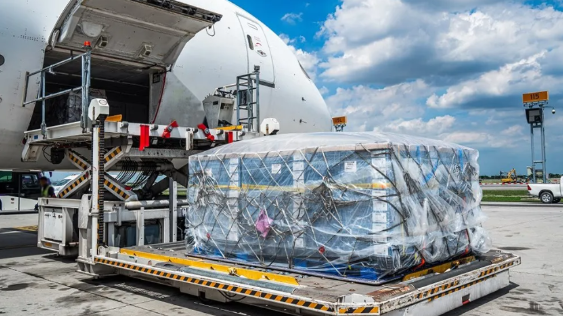Major container shipping companies are suspending at least six weekly U.S.-China routes due to a collapse in trade caused by tariff measures, according to maritime consultancy firms.
Based on capacity data provided in client consultations, vessels on these routes can carry 25,682 forty-foot containers (FEUs) weekly, filled with goods like toys, sneakers, auto parts, and materials used by American manufacturers. That translates to over 1.3 million FEUs annually.
These service cuts and individual sailing cancellations come as major container ship operators attempt to mitigate the effects of the U.S.'s unpredictable trade policies.
Ocean freight accounts for 80% of global trade and is considered a key indicator of the global economy’s health.
“This is not a warning sign—it is evidence of reduced economic activity,” said Simon Sundboell, CEO of Danish maritime data provider eeSea, describing the ongoing capacity reductions in container shipping.
According to Sundboell, the suspended routes include weekly services operated by MSC, Zim, and the Ocean Alliance (comprising COSCO, Yang Ming, CMA CGM, and OOCL). Four of the suspended services affect U.S. West Coast ports, one affects the East Coast, and one impacts the Gulf Coast.
The container shipping companies either declined to comment or did not immediately respond regarding their decisions to cut these services.
The 2M Alliance service operated by Maersk and Hapag-Lloyd remains intact, though both partners saw significant booking declines from China to the U.S. in April and have downsized some vessels as a result.
Global carriers use service suspensions and single-voyage cancellations—known as blank sailings—to keep ship supply aligned with customer demand, preserving profits amid volatile spot rate markets.
Blank sailings surged after the 2020 COVID-19 pandemic disrupted global trade—one of the key factors behind record profits for container ship operators in recent years.
Major U.S. retailers like Amazon and Walmart—who dominate nearly half of global container trade—have responded to the recent imposition of 145% tariffs on Chinese goods by pausing or canceling factory orders. These tariffs have more than doubled the cost of China-made goods.
Maritime consultancy Drewry reported this week that blank sailings on the key Asia-North America transpacific routes jumped from 9% of scheduled voyages in the week of March 30 to 24% in the week of May 4.
Drewry's data shows that the number of canceled sailings from Asia to North America's West Coast dropped capacity by 20% in April and by 12% so far in May. Cuts on East Coast-bound services were even greater, with April seeing a 22% drop and May so far an 18% reduction.
According to Daniela Gimpel, project manager for Drewry’s Ocean Freight Rate Benchmarking initiative, MSC canceled 30% of its scheduled transpacific sailings in April—more than any other carrier.
So far in May, the Premier Alliance—comprising ONE, HMM, and Yang Ming—leads with a 20% blank sailing rate, Gimpel added.
John McCown, senior fellow at the Center for Strategic and Maritime Studies, said full implementation of the tariffs may be delayed until July. By then, total U.S. container imports could fall by 25% or more year-over-year.
“Major adjustments are inevitable. Either there will be a significant reduction in capacity, or spot rates will start to collapse,” said Alan Murphy, CEO of supply chain consultancy Sea-Intelligence.

Last
Global Air Cargo Reshuffles as U.S. Ends Duty-Free De Minimis Policy, Triggering Transpacific Demand Slump
With the U.S. officially ending its "de minimis" duty-free policy for small parcels, transpacific air freight demand has sharply d

Next
Nearly Half a Ton of Cocaine Seized on Cargo Ship Bound for Amsterdam
Argentinian authorities have uncovered 469.5 kg of high-purity cocaine aboard the Ceci, a bulk carrier preparing to depart San Lor
